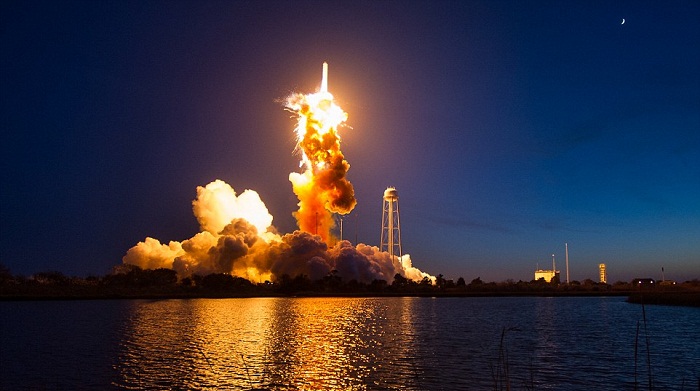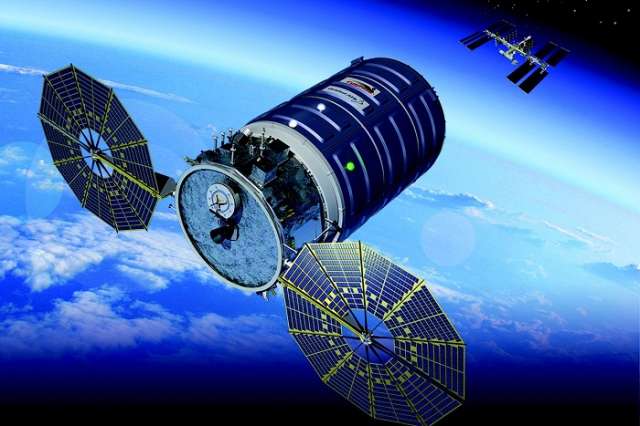The upcoming launch is part of Orbital`s contract with NASA, which charges the company with periodically resupplying the ISS. The contract, part of the Commercial Resupply Program, specifies Orbital must carry at least 44,000 pounds of cargo to the station in eight missions — by the end of 2016. But Orbital has been on an extended break from space travel since October 28th, 2014, when the company`s uncrewed Antares rocket exploded in a fiery nighttime display, just seconds after taking off from NASA’s Wallops Flight Facility in Virginia. That was the company’s third mission; Orbital took some time off after that to figure out what went wrong and also make some changes to its rocket and vehicle designs.

Thursday’s launch is Orbital’s attempt to get back on track. Since an investigation into the accident found that the explosion most likely started in one of the rocket`s two main AJ-26 engines, Orbital is going to remove the engines altogether and remodel Antares. The AJ-26 engines are made by Aerojet Rocketdyne, and there`s some debate if Aerojet`s manufacturing is actually to blame; regardless, the new Antares rocket will use RD-181 engines, made by Russian company Energomash.
But that updated Antares won`t be ready until later next year, so Orbital is getting help from the United Launch Alliance in order to meet its contractual obligations for NASA. For this Thursday`s mission and the following mission, Orbital`s Cygnus cargo capsule will launch aboard ULA`s Atlas V rocket. Then the company will switch over to the new and improved Antares for its final two launches, scheduled for 2016. If you’ve been counting, that’s seven launches, one shy of the eight specified in the contract.
To meet the weight quota, Orbital is debuting a new Cygnus spacecraft, to be used for all future commercial resupply missions. This new capsule can hold 25 percent more cargo than its predecessor, and boasts new fuel tanks and solar arrays. Its bigger carrying capacity also allows the company to scale down the number of ISS trips it has to take. The company says the enhanced Cygnus can carry the intended 44,000 pounds with fewer launches; so instead of five additional missions through 2016, the company will only do four, with Thursday’s included.
After 2016, Orbital will also do three more resupply missions to the ISS, thanks to an extension of its existing NASA contract. The company is also in the running for NASA`s second round of contracts for resupply missions to the ISS between 2018 and 2024. Orbital is up against SpaceX, NASA`s other commercial resupplier, and the Sierra Nevada Corporation for those contracts, which won`t be awarded until January 2016. The success of this Thursday`s mission will likely factor into NASA`s decision.
















































